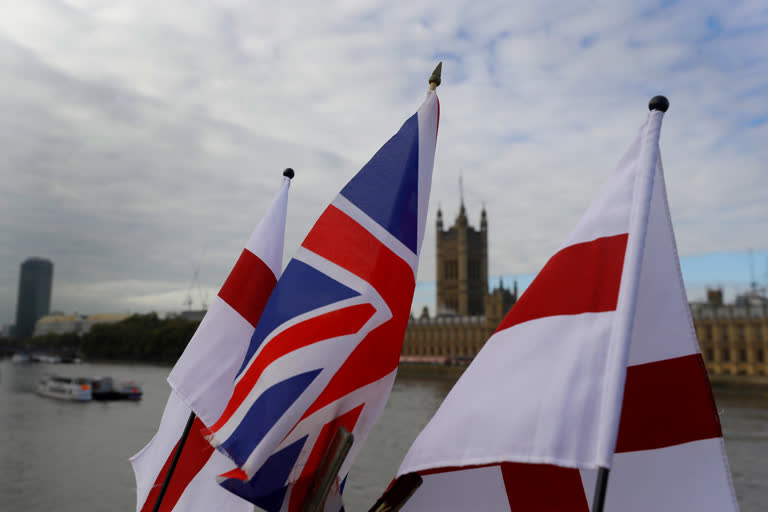London: The UK's most senior Anglican bishops warned Monday that legislation breaching part of the Brexit divorce agreement the government signed with the European Union will set a "disastrous precedent" and could undermine peace in Northern Ireland.
The warning came as Prime Minister Boris Johnson's government told British businesses to prepare for a no-deal economic break with the EU in 10 weeks' time, after the U.K. declared negotiations on future trade ties at an end unless the bloc makes major concessions.
"We believe this would create a disastrous precedent," said the letter, signed by Archbishop of Canterbury Justin Welby, who heads the Church of England, and four other archbishops.
Read also: EU takes legal action against UK over planned Brexit
"If carefully negotiated terms are not honored and laws can be 'legally' broken, on what foundations does our democracy stand?" they asked.
The Internal Market Bill has been approved by the House of Commons and begins its passage through the House of Lords on Monday. It is likely to face strong opposition in Parliament's upper chamber, where the governing Conservative Party does not have a majority.
The bill has triggered a crisis of trust between Britain and the EU, who have been attempting to strike a new trade deal since the U.K. left the bloc on Jan. 31.
If passed, the bill will allow the British government to override parts of the legally binding Brexit withdrawal agreement relating to trade with Northern Ireland, the only part of the U.K. to share a border with the EU.
Read also: UK's 'historic' post-Brexit visa strategy back in Parliament
British Prime Minister Boris Johnson's government says it needs the legislation as an insurance policy in case the EU behaves unreasonably after a post-Brexit transition period ends on Dec. 31 and tries to impede the flow of goods between Northern Ireland and the rest of the U.K.
The bloc sees it as a flagrant breach of an international treaty that could undermine the delicate foundations of Northern Ireland's peace settlement, created by the 1998 Good Friday accord.
The bill soured talks aimed at securing a new trade deal between Britain and the EU. Those talks ground to a halt last week, with each side calling for the other to compromise in order to secure a deal. The EU said it was happy to keep talking, but the British government declared that the talks were over unless there was a "fundamental" shift from the bloc.
Despite that hard-line, Britain's Brexit preparations minister, Michael Gove, said the door to talks was still "ajar." The two sides' chief negotiators, Michel Barnier for the EU and Britain's David Frost, are expected to speak by phone Monday.
Negotiations are gridlocked on the issues of fishing — highly symbolic for maritime nations on both sides — and rules to ensure common regulatory standards and fair competition. The EU fears the U.K. will gain an unfair advantage by slashing food, workplace and environmental standards and pumping state money into businesses once it is free of the bloc's rules.
Britain accuses the bloc of seeking to impose demands that it has not placed on other countries it has free trade deals with, such as Canada.
If there is no deal, businesses on both sides of the English Channel face tariffs and other obstacles to trade starting Jan. 1. British business groups warn that could mean border delays, soaring prices and shortages of some goods.
Even with an agreement, British firms will have to fill out customs declarations and other paperwork, because the U.K. is leaving the bloc's vast single market.
The British government launched an ad campaign Monday telling businesses to get ready for the end of decades of seamless trade with the Continent.
But many firms say the government has not supplied the support structures they need, including tens of thousands of customs agents.
"It's a lot of red tape, and we know that preparations have gone backwards because of the impact of COVID," said Carolyn Fairbairn, head of the Confederation of British Industry. "So this is deeply challenging for many businesses."
AP



